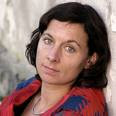 Like the 'many worlds' theory proposed by one of its main characters, Dark Matter can be read as different stories at the same time, a feast of ambiguity and delight in ideas mixed with a thriller of sometimes gut-wrenching suspense. On the face of it, physics professor Sebastian has a perfect life in a Black Forest backwater; a lovely wife and a bright ten-year old son. He worries only that he might have been left behind, in the physics world, by his once-inseparable friend Oskar, now a high-powered researcher in Geneva. Then his world collapses: his son is kidnapped while on his way to camp, and Sebastian is told that, if he wants his son back, he has to kill a man named Dabblelink who is a close friend of his wife's.
Like the 'many worlds' theory proposed by one of its main characters, Dark Matter can be read as different stories at the same time, a feast of ambiguity and delight in ideas mixed with a thriller of sometimes gut-wrenching suspense. On the face of it, physics professor Sebastian has a perfect life in a Black Forest backwater; a lovely wife and a bright ten-year old son. He worries only that he might have been left behind, in the physics world, by his once-inseparable friend Oskar, now a high-powered researcher in Geneva. Then his world collapses: his son is kidnapped while on his way to camp, and Sebastian is told that, if he wants his son back, he has to kill a man named Dabblelink who is a close friend of his wife's.Juli Zeh moves this book in multiple directions, but at its core is the very real moral dilemma Sebastian faces. This acts as a fulcrum for the arch relationship between Sebastian and Oskar, with its overtones of Edwardian dandies as well as quantum mechanics, and for the 'crime' part of the novel, when Detective Schilf, dying with a brain tumour, is sent from Stuttgart to assist his old protege, the Valkyrie-like Rita Skoura with the case. The book might be read as a meditation on repressed homosexuality; it also follows one dying man's struggle to understand existence.
And that latter quest reverberates with Schlif's (whose name means 'reed' in German) entrance. The focus changes, not so much to the crime's 'solution' but to the characters of our two physicists, and Schilf's attempts to understand their theoretical argument, and through that understand the crime. In effect, he stands in for the reader, or a certain type of reader, and in German the novel itself is titled Schilf. And when the mechanisms of the kidnap and murder are revealed, we realise through an exquisite twist, that it is itself enmeshed in just the sort of issues the two scientists have been arguing. Fear of spoiling makes that difficult to explain more, but trust me, it works perfectly, at least in this dimension.
This sketching in of plot cannot do justice to the intricacies of this novel's structure, nor its prose which, even in translation, is both challenging and playful. 'Nature is a labyrinth of distorting images,' a butterfly collector tells Sebastian as the latter prepares his murder trap for Dabblelink. Sebastian ought to have paid more attention. But just as Oskar and Sebastian suggest Wilde, the butterfly collector suggests the shifting realities of Nabokov, and that is the territory Zeh has staked out here, that zone where the mysteries of the novel and the mysteries of the murder overlap.
 You might try to identify a European school of 'intellectual' novels that crossover into crime, books with theoretical bases, and you might link Zeh to it. But I thought more of Durrenmatt, with those echoes of the Theatre of the Absurd, and of American writers like Philip K Dick and Jack O'Connell. That the prose can be so captivating, and the aphorisms so frequent turns the book into an adventure of the mind, satisfying on whichever level the reader wishes to approach it. It is certainly the best novel I've read so far this year, and should mark Zeh as one of Europe's brightest younger novelists. And if you're reading this in America, note that the book will get its third title, In Free Fall, there--Dark Matter, with its reference to physics and its overtones of menace, probably works better for me, but a rose by any name is still a labyrinth of distorting images.
You might try to identify a European school of 'intellectual' novels that crossover into crime, books with theoretical bases, and you might link Zeh to it. But I thought more of Durrenmatt, with those echoes of the Theatre of the Absurd, and of American writers like Philip K Dick and Jack O'Connell. That the prose can be so captivating, and the aphorisms so frequent turns the book into an adventure of the mind, satisfying on whichever level the reader wishes to approach it. It is certainly the best novel I've read so far this year, and should mark Zeh as one of Europe's brightest younger novelists. And if you're reading this in America, note that the book will get its third title, In Free Fall, there--Dark Matter, with its reference to physics and its overtones of menace, probably works better for me, but a rose by any name is still a labyrinth of distorting images.Dark Matter by Juli Zeh
Harvill Secker £12.99 ISBN 9781846552083
NOTE: Check at IT for an interview with Juli Zeh in the very near future...
NOTE 2: This review will also appear at www.crimetime.co.uk

No comments :
Post a Comment